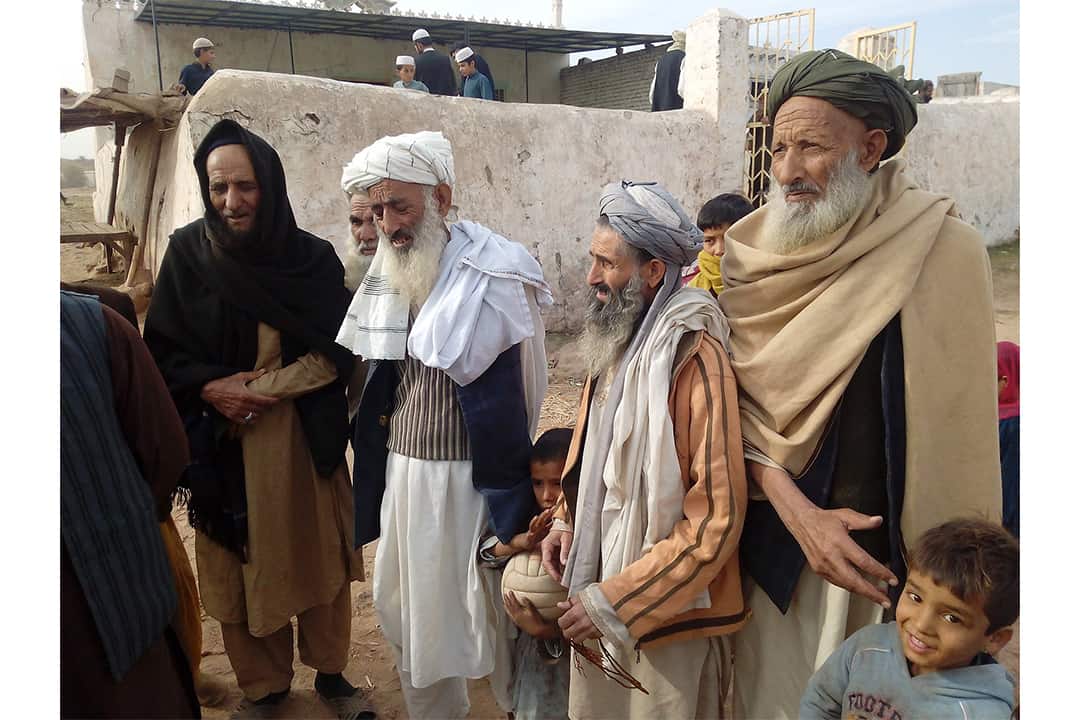The longer the world tries to solve refugee ‘crises’ by expelling refugees, the further we stray from a resolution. The real issue lies in our approach: the tendency to categorize refugees as a problem is ignorant. Blaming refugee crises on refugees is like blaming the climate crisis on planet Earth.
Much like global warming with the climate crisis, refugees themselves aren’t a ‘problem,’ but the events that create refugees are. Such is the case in Afghanistan. Upward of eight million Afghans are currently either refugees, internally displaced persons, or seeking asylum. Their decision to leave in search of a new home, to seek stability, is a product of the strife within their country.
Afghanistan is politically unstable, and this turmoil can be traced back to the early 1970s when a coup against former president Daoud Khan forced a group of Afghans to flee to Pakistan. A communist government came soon after, then the Taliban, the United States of America, and the Taliban again.
This instability in Afghanistan is why millions of Afghans have had to seek refuge in neighbouring countries in the past five decades. Pakistan was one of those countries until last month, when the current government ordered all ‘undocumented’ immigrants — mainly about 1.73 million Afghans — to leave the country by November 1.
Pakistan’s Interim Prime Minister Anwar ul-Haq Kakar said that this move was to protect Pakistanis from the increase in terror attacks by Tehrik-e-Taliban Pakistan (TTP) — an alleged affiliate of the Taliban. In response, the Taliban denied any involvement in Pakistan.
While the blame shifted, as it often does, and people started pointing fingers, as they often do, over 370,000 Afghans were forcibly expelled from Pakistan, most of whom had spent their entire lives in Pakistan and knew little of a home elsewhere. To them, Pakistan is where their children were born, where their parents were buried, where they earned an income, and where they built a home. However, it seems like the emotional attachment to a place means little to the Pakistani government in the absence of documents legitimizing the refugees’ stay in Pakistan.
The Pakistani population has been growing intolerant of Afghan refugees in response to a perceived connection with the TTP. As the TTP increases its activity, Prime Minister Kakar’s fears for his people’s safety seem legitimate — but I still think the Pakistani government’s decision was wrong. Their decision to address the refugee ‘problem’ by sending the refugees back to Afghanistan stands in violation of the international order. The United Nations Convention Against Torture (UNCAT) prevents countries from sending asylum seekers to regions where they face a “clear risk of torture or other persecution.” Pakistan is a state party to UNCAT, and its government thus has an obligation to ensure the safety of the million Afghan refugees who sought shelter in their country.
However, the grim reality is that the UN conventions and treaties are often broken by member states. The Pakistani government faces few consequences for violating the treaty as UN resolutions are non-binding. The UN, its subsidiary bodies, and the international community continue to appeal against Pakistan’s actions, but no one can legally force the Pakistani government in a direction that it doesn’t wish to go in. All the while, Pakistan’s government continues to forcibly expel Afghans.
The problem is not the Afghans living in Pakistan, or Iran, or the US for that matter. The problem is the situation in Afghanistan. It is the terror attacks in Pakistan. It is the additional problems that refugees already face in Pakistani refugee camps, like high rates of dangerous substance use and substance use disorder. It is the corruption that consumes the Pakistani police force as it harasses and jails both documented and undocumented Afghan refugees within its country’s borders. Many elements of the Pakistani democracy have been in a state of instability since independence, and thus, I believe it is unfair to ask the country’s government to solve these problems overnight. Perhaps that is why it decided to expel the refugees, as that may have seemed like the fastest way to address these problems.
I know little about decision-making in international communities. I know even less about running a country. However, one does not need to know governance to understand that human beings require access to food, shelter, and safety — none of which are guaranteed to these refugees in Afghanistan. Though it is further upsetting that the refugees weren’t guaranteed the same in Pakistan either, at the least, they weren’t subject to an oppressive regime.
Beyond documentation, beyond borders, and beyond bureaucracy, I think it says a lot when Afghan refugees would rather continue to stay in the substandard living conditions in Pakistani refugee camps instead of moving back ‘home.’ In my view, Pakistan sending Afghan refugees back is part of a worldwide problem in the treatment of and attitudes toward refugees. That is the problem that we should be looking to solve.
Nidhil Vohra is a fourth-year student at St. Michael’s College studying peace, conflict and justice and political science. He is an International Affairs columnist for The Varsity’s Comment section.



No comments to display.